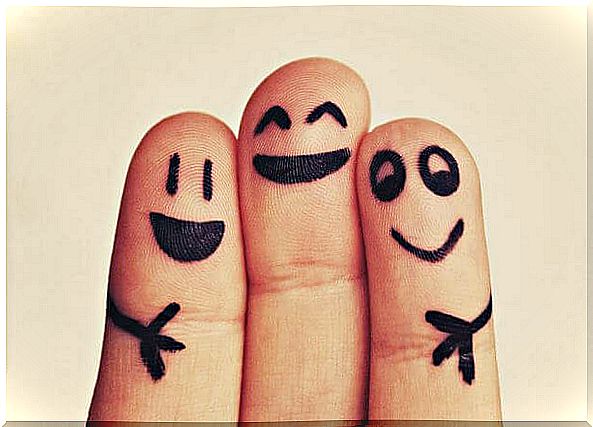Do You Know How Emotions Influence The Expression Of Our Genes?

Much is said about feeling good. However, feeling good is not everything. At least that is what we can conclude from research that found that doing good has a more beneficial and powerful impact on us than our own well-being.
The study in question, conducted by researchers at the Cousins Center for Psychoneuroimmunology (UCLA) and the University of North Carolina, was the first to investigate the impact of different types of happiness on the human genome.
The researchers examined how specific components of positive psychology impact human gene expression. They found that different types of happiness have different impacts on our genomes.
The question posed by this study was whether different types of well-being activated positive types of gene expression. To do this, the researchers examined the biological implications of the two types of well-being – the hedonistic type and the eudaimonic type – through the lens of the human genome, which is a complex system made up of more than 21,000 genes that has evolved to help us survive.
Well-being and the human genome
For the past 10 years, the researchers who conducted this study have been examining how the human genome responds to stress, misery, fear, and all kinds of negative events. In this study, however, the researchers wondered how the human genome might respond to positive psychology. They wanted to know if well-being influenced gene expression and, if so, how it did.
Previous studies had found that circulating immune cells show a systematic change in the expression profiles of reference genes during long periods of stress, threat, or uncertainty. Known as the conserved transcriptional response to adversity, or CTRA, this change is characterized by an increase in the expression of genes involved in inflammation and a decrease in the expression of genes involved in antiviral responses.
According to the researchers, this response likely evolved to help the immune system counteract the changing patterns of microbial threat that were ancestrally associated with changing socio-environmental conditions. These threats include bacterial infection of wounds caused by social conflict, as well as an increased risk of viral infection associated with social contact.

Eudaimonic Well-Being Vs Hedonic Well-Being
The UCLA researchers differentiated happiness according to two types of well-being and studied people with high levels of each type.
- The first category, eudaimonic well-being, is defined as a type of happiness based on a greater sense of purpose and deeper meaning in life.
- The second category, hedonic well-being, is defined as a type of happiness based on self-gratification.
The researchers took blood samples from 80 healthy adults who were evaluated for their hedonic and eudaimonic well-being, as well as potential negative psychological and behavioral factors. The team used CTRA gene expression profiling to map the potentially different biological effects of both types of well-being.
People with a eudaimonic disposition showed favorable gene expression profiles in their immune cells, and had low levels of inflammatory gene expression. Eudaimonic individuals also had strong expression of antiviral and antibody genes.
However, although both groups appeared to have the same high levels of positive emotion, the genomes of the hedonic group were responding very differently, even though their emotional states were equally positive. Thus, those with a hedonistic sense of well-being showed an adverse expression profile involving inflammation of antiviral antibodies.
Doing good makes us feel good, in the broadest sense of the expression
The researchers say that what this study contributes is that doing good and feeling good have very different effects on our genome, despite the fact that they generate the same levels of positive emotions. The human genome appears to be much more sensitive to different ways of achieving happiness than the conscious mind is.









